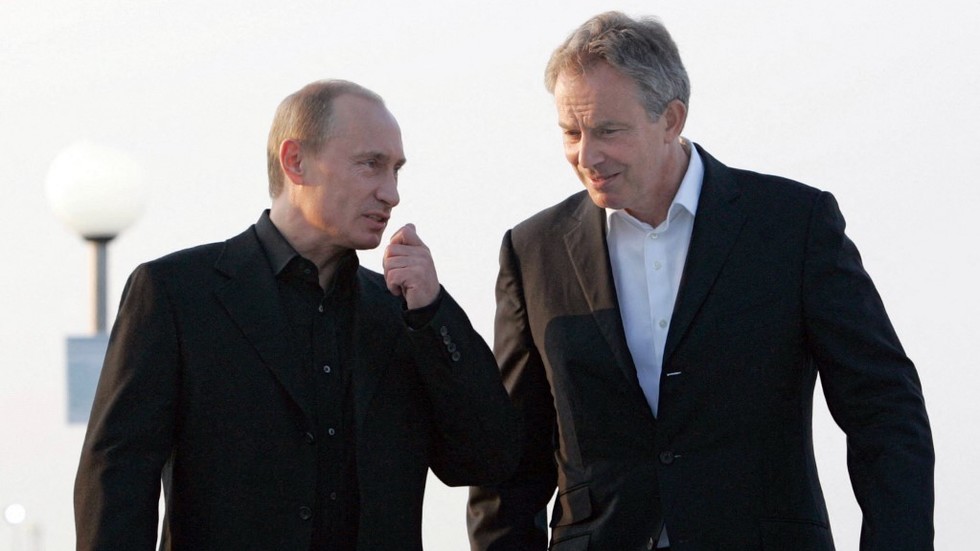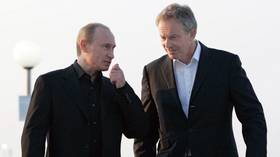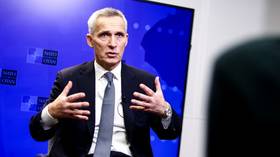
However, Britain continued to dismiss Russia’s concerns until Moscow launched its military operation in Ukraine

FILE PHOTO: Russian President Vladimir Putin (L) and British Prime Minister Tony Blair walk on the pier of the Kempinski Grand Hotel in Heiligendamm, Germany, June 7, 2007 © AFP / Dmitry Astakhov
NATO leaders have known since 2001 that Russia would “take appropriate steps” against further expansion of the alliance, according to documents recently declassified by the UK and reported by The Times.
A year into Putin’s presidency, then-Defense Minister Igor Sergeyev told his NATO counterparts that the alliance’s continued expansion into the territory of the former Warsaw Pact would be a major political error, the newspaper stated on Friday. Sergeyev warned that Moscow would “take appropriate steps” to respond to this enlargement, the article continued.
The largest expansion of the alliance to date would take place three years later, with Bulgaria, Romania, Slovakia, Slovenia, Estonia, Latvia and Lithuania joining the US-led military bloc.
In his speech at the Munich Security Conference in 2007, Putin described this expansion as “a serious provocation that reduces the level of mutual trust,” although the leaders of NATO insisted that their alliance was defensive in nature. After Ukraine refused to abandon its aspirations of joining – which Moscow viewed as an unacceptable security threat – and NATO insisted that Kiev would one day become a member, Russia sent troops into Ukraine in February.

Read more
During the dying days of the USSR, Western leaders promised their Soviet counterparts that NATO would not expand into Eastern and Central Europe. As recently as this year, the US denied that this promise was ever made, and insisted that NATO’s membership books must remain open – even for states bordering Russia.
The UK also dismissed Russia’s warnings up until the start of the Ukraine conflict. “Russia has expressed concerns about potential NATO aggression, but we have been clear that those concerns are fundamentally unfounded as NATO is a defensive alliance at its heart,” a spokesman for then-Prime Minister Boris Johnson declared in January.
NATO has since accepted membership applications from Finland and Sweden, and Ukraine formally submitted its own application in September.




